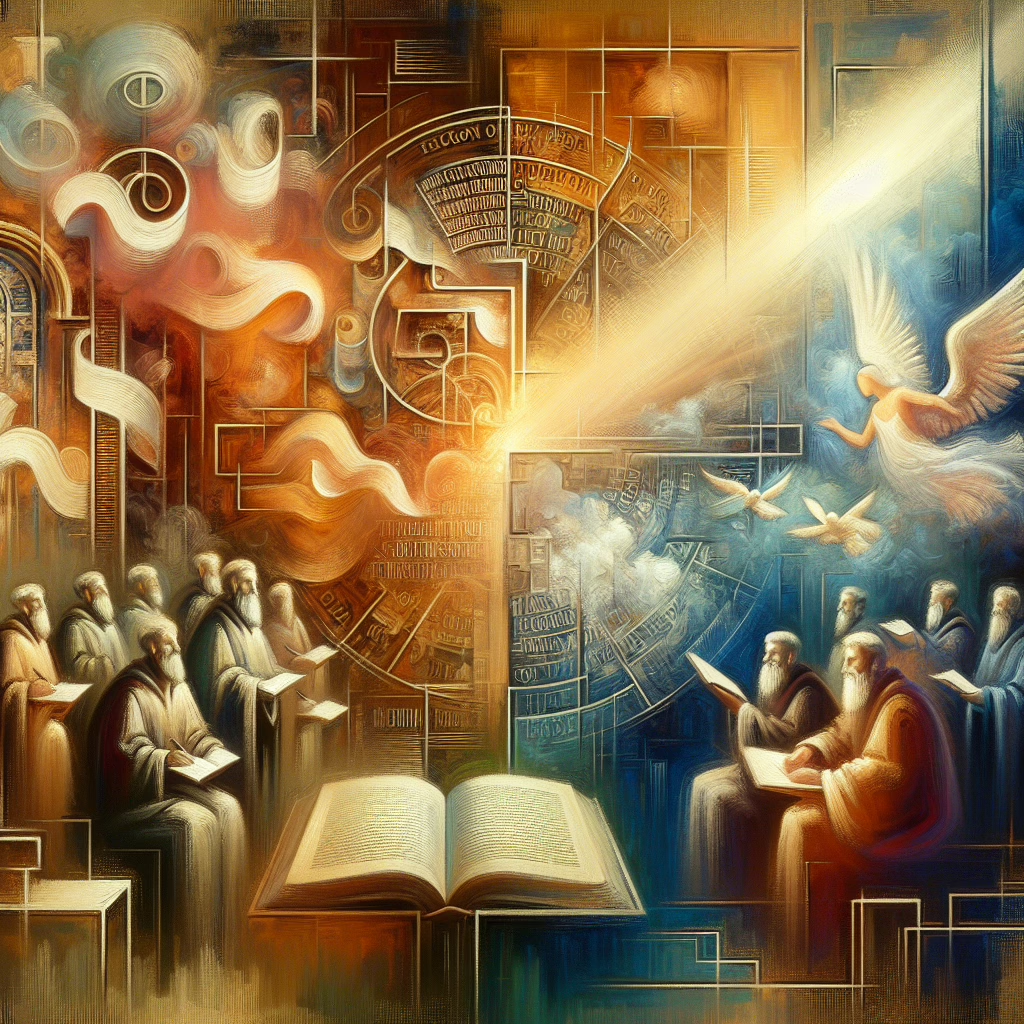Protestants vs. Catholics: Sacred Tradition vs. Sola Scriptura
Introduction: The Divisive Debate
Unraveling the theological clash between Sacred Tradition and Sola Scriptura takes us back to the profound religious transformations of the sixteenth century. It was during the Protestant Reformation that the principle of Sola Scriptura—or Scripture alone as the ultimate authority—emerged as a defining doctrine of Protestant theology. In response, the Council of Trent affirmed the Catholic view that Sacred Tradition and Sacred Scripture together constitute the full deposit of faith. Understanding this longstanding debate requires an analysis of the contrasting views on divine authority.
In this context, we explore a crucial question: What is the role of Sacred Tradition in Catholic theology? By dissecting both Protestant objections and Catholic responses, we gain clarity on how the Catholic Church upholds Sacred Tradition as an essential companion to the Scriptural foundations of the faith.
1. Objection: Scripture Alone as the Ultimate Authority
1.1 The Protestant Argument
Proponents of Sola Scriptura often point to 2 Timothy 3:16-17, which emphasizes the sufficiency of Scripture for teaching and guidance: "All Scripture is God-breathed and is useful for teaching, rebuking, correcting, and training in righteousness." This passage is cited to argue that Scripture alone is essential for understanding divine truths.
Moreover, they reference Mark 7:8-13, where Jesus criticizes the Pharisees for prioritizing human traditions over God's commandments: "You have let go of the commands of God and are holding on to human traditions." Protestants see this as a warning against elevating traditions to the same level as Scripture.
Finally, Acts 17:11 highlights the Bereans' noble character in examining scriptures daily to verify the teachings they received: "Now the Bereans were of more noble character than those in Thessalonica, for they received the message with great eagerness and examined the Scriptures every day to see if what Paul said was true." This is often interpreted as advocacy for individual examination of Scriptures over reliance on Tradition.
1.2 Catholic Response: Harmony of Sacred Tradition and Scripture
While 2 Timothy 3:16-17 acknowledges the importance of Scripture, it does not negate the value of Sacred Tradition. In fact, the Catholic view encompasses a harmonious relationship between the two. 1 Corinthians 11:2 illustrates the endorsement of oral tradition alongside written teachings: "I praise you for remembering me in everything and for holding to the traditions just as I passed them on to you." This reflects the apostolic transmission of faith that extends beyond the written word.
In Matthew 28:19-20, Christ commissions His disciples to teach all nations, encapsulating a command that goes beyond mere documentation in texts: "Therefore go and make disciples of all nations, baptizing them in the name of the Father and of the Son and of the Holy Spirit, and teaching them to obey everything I have commanded you." This reinforces the necessity of passing down teachings through both Scripture and Tradition.
1.3 Supporting Evidence
"It is necessary to obey those who are the successors of the Apostles… We must keep to the tradition of the Church."
— St. Irenaeus, Against Heresies, Book III
Church Fathers like St. Irenaeus emphasize Apostolic Tradition as a critical component of faith transmission. Before the canonization of the Bible, early Christians relied heavily on Apostolic teachings passed down through oral traditions. Link: Sacred Tradition Importance provides a detailed explanation of the integral role of Sacred Tradition within Catholic theology.
2. Objection: Fallibility of Human Tradition
2.1 The Protestant Argument
Protestants express concerns regarding human traditions, which may be prone to errors and changes over time. They point to historical variability in Catholic practices and beliefs as evidence against the reliability of Tradition. Such changes raise questions about the infallibility and consistency of human tradition over centuries.
2.2 Catholic Response: Protection and Continuity of Sacred Tradition
Catholics, however, trust that Sacred Tradition is protected from error by the Holy Spirit. This divine guidance ensures the integrity of Tradition across generations. The Magisterium, the Church's teaching authority, plays a pivotal role in interpreting both Tradition and Scripture, maintaining doctrinal accuracy. Ecumenical Councils, such as the Council of Trent, serve as examples of Tradition being guided by the Spirit to safeguard the faith.
2.3 Supporting Evidence
The continuity and protection of Sacred Tradition are demonstrated through Apostolic succession, ensuring the Church's faithfulness to the teachings of the Apostles. Early Church practices, such as the development of the canon and doctrinal formulations, reflect the authoritative role of Sacred Tradition. Link: Catholic Church's Authority in Interpretation explores the Magisterium's essential role in preserving both Tradition and Scripture.
"For it is through the succession of bishops that we have received the truth."
— St. Irenaeus, Against Heresies, Book III
Conclusion: The Holistic Approach to Divine Revelation
In conclusion, the Catholic Church views Scripture and Tradition as complementary pillars, forming the bedrock of Christian faith. They are preserved faithfully through the unwavering guidance of the Magisterium, ensuring doctrinal consistency across ages.
The Catholic view holds that relying solely on Scripture, as posited by Sola Scriptura, limits the richness of divine revelation entrusted to the Church. Study of Sacred Tradition enriches our understanding of faith, inviting believers to engage more deeply with Church teachings and the writings of Church Fathers.
For those seeking to delve deeper into the theological richness of Catholic tradition, exploring further Catholic Theology Explained is an enlightening next step.
By embracing the full spectrum of divine revelation through both Scripture and Sacred Tradition, one truly appreciates the depth of the Catholic faith, shaped not in isolation, but in the confluence of divine wisdom and historical fidelity.






Leave a Reply